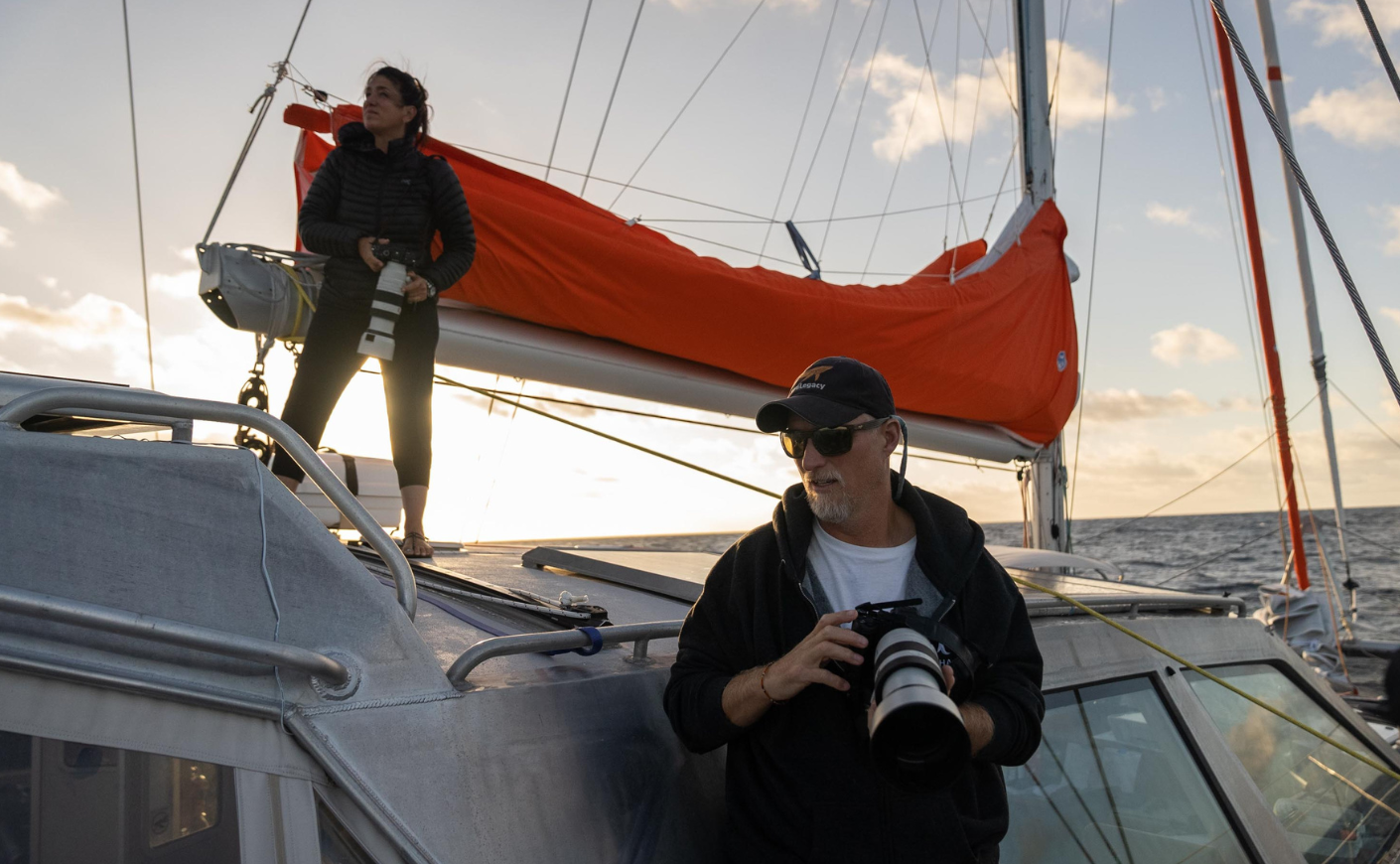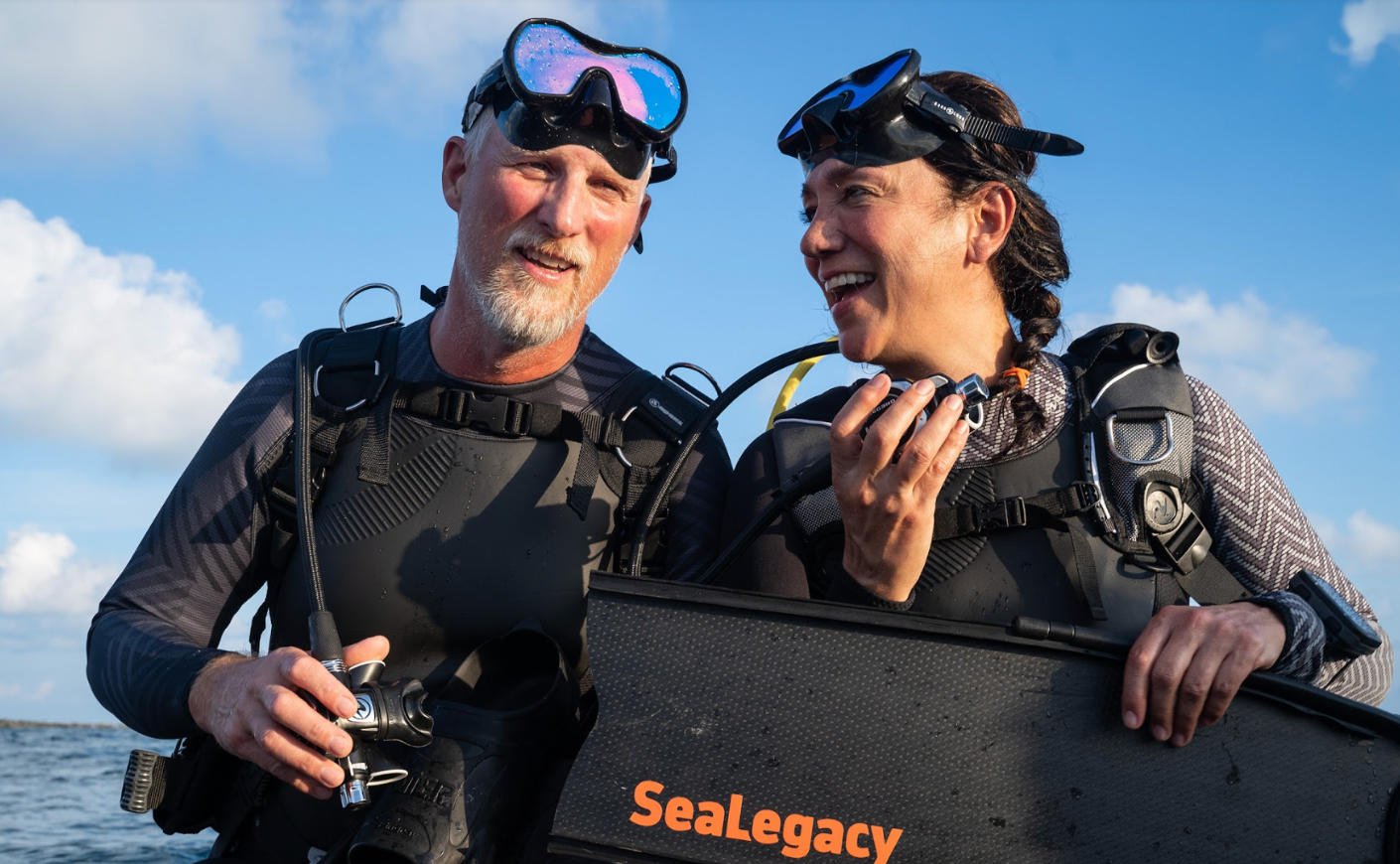Spending months at sea can be challenging, to say the least. When you’re living in such close quarters with bunkmates (yes, that includes the ones you love, respect, and are even married to!), the most minor disagreements can turn into arguments that test our spirits. Certainly anyone who’s going home for the holidays can understand that feeling — the people you love most in the world can still drive you nuts if you spend too much quality time with them.
To deal with the difficult aspects of spending so much of our lives at sea, my partner Paul and I have developed a fun way of diffusing tension and reminding us why we’re out there to begin with. Paul calls it "Rose, Bud, Thorn," and the rules are simple: Everyone lists the most recent example they've experienced of each word in the title.

The rose represents a life highlight or otherwise positive experience; the bud symbolizes an emerging opportunity with exciting potential; and the thorn signifies a challenge or difficulty you faced recently. The process of playing Rose, Bud, Thorn is equal parts meaningful and educational. It fosters open communication, empathy, and deep reflection — which is why the team at SeaLegacy wanted to play the game as we approach the end of one year and the start of another.
We have two roses for 2023. The first one has to do with partnership. We’ve been so thrilled to watch the sudden abundance of initiatives between governments, NGOs, and local communities to foster inclusive approaches to ocean issues, with the explicit goal of empowering coastal populations and indigenous communities to have a role in the decision-making process. One great example of this essential work is the declaration of the Kitasu Bay indigenous-lead marine protected area in British Colombia, Canada. Another is the decade-long support of the Pew Bertarelli Ocean Legacy for the ancient concept of Rahui in French Polynesia. Rahui is a mandate by the community itself to protect an area or species in need of recovery. Many Rahui initiatives are succeeding and are looking to expand beyond coastal waters to the high sea in the coming year.
Our second rose has to do with innovation. This year, we witnessed groundbreaking research wins, which shed light on the critical importance of ocean conversation. This research emphasizes the interconnectedness between healthy oceans and their power to decarbonize the atmosphere, feed the world, moderate our climate, and sustain a future for all life on Earth — all while serving as a foundation to the world economy.

Up next, our bud: We’ve been thrilled to watch so many coastal nations make significant progress towards our ambitious goal of 30 percent protection for our oceans by 2030. At the moment, we are hovering around a 9 percent protection rate. This means we still have a long way to go in order to hit our 2030 goal, but the increase in momentum gives us hope we’ll pull it off.
Which brings us to our thorn for 2023: the transition away from fossil fuels isn’t happening fast enough.
What’s more, efforts to accelerate this transition are causing new environmental issues. For example, electric vehicle manufacturers are now threatening our oceans with deep sea mining initiatives, because minerals like nickel, cobalt, and copper, which are essential for car battery production, are plentiful within the sea bed. Even this critical thorn, though, comes with an amazing rose: So many countries have moved rapidly to ban deep sea mining and hopefully put an end to this global threat.
A world without thorns is an impossible dream, but countries worldwide have shown that we can improve ourselves by showing empathy and compassion to each other and the natural world that sustains us. We hope that by this time next year, as we approach 2025, ocean conservation will be an even larger and more mainstream part of this ongoing environmental conversation.
May we all celebrate an abundance of roses and buds — and may we always remember that if we work together, the thorns can always be kept at bay.
Paul Nicklen, Cristina Mittermeier and Andy Mann co-founded SeaLegacy in 2014. SeaLegacy’s mission is to inspire people to fall in love with the ocean, amplify a network of changemakers around the world, and catalyze hands-on diplomacy through hopeful, world-class visual storytelling.









